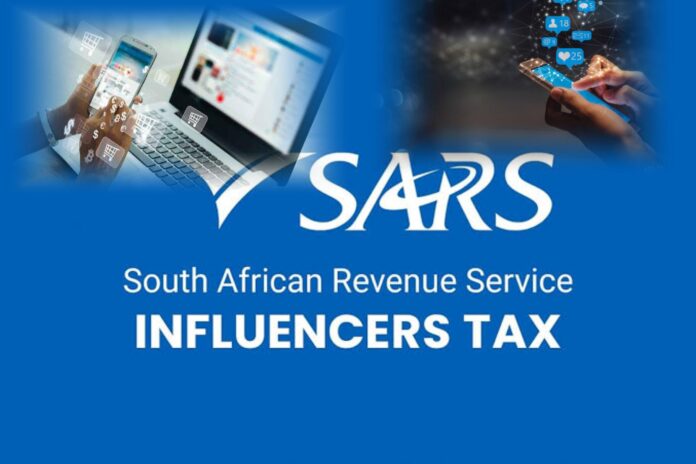<span;>The South African Revenue Service (SARS) is increasing scrutiny on social media influencers to ensure they comply with tax regulations, especially concerning undeclared income derived from their online activities. This initiative reflects a broader trend of tax authorities worldwide adapting to the digital economy and finding new methods to capture revenue from emerging professions. Here’s a closer look at the situation:
<span;>Main focus is:
<span;>1. Undeclared Income:Influencers often earn income through various streams, including sponsorships, brand deals, and other perks like free trips and meals. Many influencers may not be aware that these benefits are considered taxable income and must be declared.
<span;>2. Lack of Tax Knowledge: Many influencers may lack the financial literacy or understanding of tax obligations, especially if they began their careers informally and without traditional business training.
<span;>3. Scope of Taxable Benefits: SARS emphasizes that all forms of income, whether cash or in-kind benefits, should be declared. This includes both formal sponsorship agreements and informal freebies if there is an expectation of promotion in return.
<span;>4. Use of Technology: SARS is employing artificial intelligence (AI) and data analytics to track and identify undeclared income, thereby improving efficiency in tax collection. This technological approach allows the agency to cross-reference data and uncover discrepancies.
<span;>Implications for Influencers
<span;>1. Necessity for Compliance: Influencers are urged to ensure that they understand their tax obligations and declare all forms of income accurately. This may require engaging with tax professionals or financial advisors who can provide guidance on tax planning.
<span;>2. Potential Penalties: Non-compliance can lead to significant administrative penalties, ranging from R250 to R16,000 per month for each outstanding return. In severe cases, persistent non-compliance could result in criminal charges for tax evasion.
<span;>3. Educational Opportunities: There is a need for educational initiatives to help influencers understand their tax responsibilities. This could involve workshops, online resources, and collaborations with financial experts to provide the necessary knowledge.
<span;>4. Transparency and Record-Keeping: Influencers should maintain meticulous records of all income sources, including contracts and agreements related to their earnings, to ensure transparency and facilitate accurate tax filings.
<span;>Broader Context
<span;>Revenue Collection Goals: SARS is under pressure to meet ambitious revenue targets, such as the R1,840.8 billion for the 2024/25 fiscal year. Efficient tax collection from all sectors, including the growing influencer market, is crucial to achieving these goals.
<span;>Global Trends: The move by SARS mirrors global trends where tax authorities are updating their strategies to capture revenue from digital and gig economy participants. This includes using advanced technologies to detect and address tax evasion and non-compliance effectively.
<span;>In conclusion, as the digital economy continues to expand, social media influencers must be proactive in understanding and fulfilling their tax obligations. By doing so, they can avoid penalties and contribute to the broader fiscal health of the economy.

